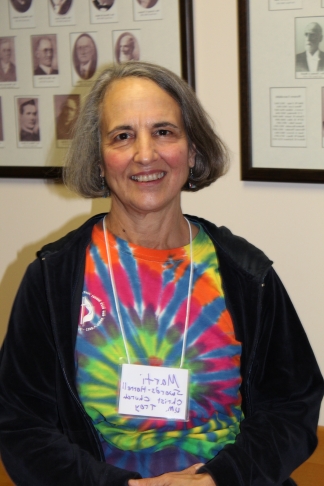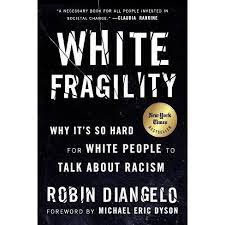news article
The grace to admit fragility
April 27, 2021 / By Rev. Marti Swords-Horrell
“The Lord said to me, “My grace is enough for you, because power is made perfect in weakness.”
So I’ll gladly spend my time bragging about my weaknesses, so that Christ’s power can rest on me. Therefore, I’ m all right with weaknesses, insults, disasters, harassments, and stressful situations for the sake of Christ, because when I’m weak, then I’m strong.” - - II Corinthians 12: 9 – 10, Common English Bible
m all right with weaknesses, insults, disasters, harassments, and stressful situations for the sake of Christ, because when I’m weak, then I’m strong.” - - II Corinthians 12: 9 – 10, Common English Bible
I have always considered myself to be a strong person: physically and psychologically. When I was small, I emulated my brothers Peter and Andy, and my cousin Dave Moore: always trying to run as fast as they did, play as hard as they did, and climb trees just as high as they did. A “tom boy” all the way! My father had a bad back, so my brothers and I had to do the heavy work around the house and yard. I’ve also learned to be psychologically strong, from the many moves my family made from parsonage to parsonage when I was growing up, as well as from being widowed at a young age.
Imagine my surprise, then, at finding out just how fragile I am! I cannot exempt myself from what Dr. Robin DiAngelo rightly calls “white fragility” (White Fragility: Why It’s So Hard for White People to Talk About Racism (Beacon Press, 2018). Why are we white people so fragile? Especially while being in power for so many years? What a relief to humbly acknowledge, as the Apostle Paul did so many years ago, that “when we are weak, we are strong.”
These past several months have been devoted, for me and so many others, to facing the twin pandemics of racism and COVID19, and how they are intertwined. The first pandemic is nothing new. Our nation has been dominated by the deadly virus of racism and white supremacy ever since the first enslaved Africans were dragged onto our shores four hundred years ago. The United Methodist Church has uplifted the eradication of racism as a top priority for many quadrennia, as together we seek to reckon with our nation’s “original sin.”
But the global COVID pandemic that started last year has thrown the virus of racism ever-sharper relief. More people of color worldwide are dying from the virus, due to lack of access to affordable and reliable health care, as well as due to pre-existing conditions that are found too often among low-income folk. More people of color may also be found among our heroic essential workers: nurses, doctors, aides, lab techs, housekeeping and materials maintenance staff at hospitals and nursing homes, as well as truck drivers and those who work in grocery stores and restaurants. Coronavirus deaths in communities of color were thrown into sharp relief by the murder of Mr. George Floyd in police custody in Minneapolis last May 25, the same day a white woman, Amy Cooper, called the police in New York’s Central Park because an African American man (also by the last name of Cooper but no relation) asked her to leash her dog.
In theology we speak of two kinds of time, using two Greek words. Chronos refers to chronological time, as the seconds and minutes, hours, days, weeks, months, and years of our lives tick by. Kairos refers to those moments out of chronological time, God’s time, when the Kindom of God suddenly interrupts chronological time, when the will of the Almighty is done whether we’re ready or not. The death of George Floyd and the collision of these two devastating viruses represent a kairos moment in our wor ld.
ld.
It’s time. It’s past time for each congregation to actively face racism: our complicity in it, our passivity in the face of it, our fragility. I’ve taken heart that 52 persons have enrolled in six sections of “Imagine No Racism” class here at Oneonta First since July, sponsored by our Upper New York Conference Commission on Religion and Race. I’m thankful to our Lay Member, Margaret Parish, for partnering with me to co-facilitate these classes. I’m learning so much every day: not only from the classes themselves, but from the outside reading I am doing. Recently, I finished Dr. Ibram X. Kendi’s How to Be an Antiracist (Random House, 2019). Some of you know Dr. Kendi: early in his career, he taught here in Oneonta, at SUNY. It’s a memoir of his life, interwoven with analysis of the history of racism in this country and a call to action to commit ourselves to confession of our racism and to the work of an anti-racist. Dr. Kendi has become one of my heroes.
Healing comes from honesty. Confession and humility mark the way forward. There is hope, as each of us finds the grace to cease being part of the problem and the courage to become part of the solution. And we can count on our faith to lead us on. As Kirk Franklin sings, “We need a strong God, we need a real God, a God with the resurrection power from the grave, to heal the human race, to take away the hate” (Strong God, from the album Long Live Love, Kirk Franklin, 2019.) For even as weak as we are, God is strong. Amen.